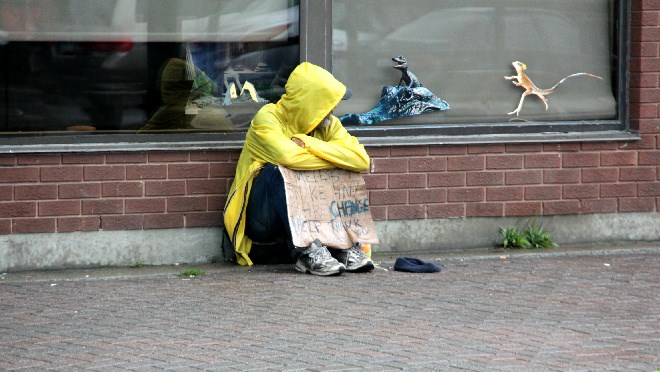The governing Liberals released a plan to fight poverty Wednesday, recommitting itself to reducing child poverty by 25 per cent, but not including a timeline.
The plan commits new money to the effort, which was first announced as a five-year initiative in 2008. Wednesday's announcement reverses some funding cuts announced in 2012, and which let to a high-profile sit-in at the office of Rick Bartolucci, a former Liberal cabinet minister who retired this year.
The new money includes $42 million for the Community Homelessness Prevention Initiative, which, among other things, helps at-risk people avoid homelessness by covering certain expenses they can't afford. The plan also includes $50 million over five years for efforts to get homeless people into the workforce. The program will reward local groups who have success in getting people off the streets.
“I know that there are many faces to poverty across the province,” said Deb Matthews, the minister Responsible for the Poverty Reduction Strategy, in a news release. “That’s why our efforts will be as varied and diverse as our people, because everyone has the right to realize their full potential.”
But Nickel Belt MPP France Gélinas said despite the upbeat news release, the Liberals failed miserably in their goal of reducing child poverty.
“There's actually more children in poverty now than there were (in 2008),” Gélinas said Wednesday. “(But) I'm happy that they're still talking about poverty and it's hasn't fallen off their radar completely.”
But the more she looks at the plan, the more problems she sees. For example, increasing the child benefit to $1,310 is good, but Gélinas said that means other recipients will get that much less. And the $50-million fund has major flaws. While it makes sense to reward groups who succeed at getting vulnerable people into the workforce, Gélinas said it could end up hurting people who need help the most.
She paraphrased the federal Progressive Conservative government, who say the best social program is a good job.
“And frankly, they are sort of right.”
But the $50-million fund will make it harder for some people in society to get a job. That's because social service groups who want to keep their funding will have to show the province they are being successful, Gélinas said. Those groups will be tempted to target mainly people who have the best chance of getting a job. Because if they focus on people who need help the most, their success rates will drop and they risk losing funding.
“But those are the people that are really hard to (help) crack the workforce,” she said. “So to me, that's a red flag ... It sounds good at first, but the (Liberals) haven't learned.”
While we are a well-off society overall, Gélinas said there are “pockets of deep poverty in my riding, and in this city. But with the wealth we have in this province, there's no reason for kids to go to bed hungry.”
Other elements of the plan introduced Wednesday include:
Creating 1,000 new supportive housing spaces by allocating $16 million over three years to help Ontarians living with mental illness and addictions issues.
Raising the maximum annual benefit for the Ontario Child Benefit — which supports about one million children in more than 500,000 low- to moderate-income families — to $1,310 per child and indexing the benefit to inflation.
Committing to provide health benefits for children and youth in low-income families to ensure they have access to services outside of publicly funded health care, such as prescription drugs, vision care and mental health services.
The province also says it will seek “expert advice on how to measure the problem of homelessness and collect data to generate evidence-based solutions."
The province will also evaluate the effectiveness of its programs more broadly to ensure dollars are spent where they have the greatest impact.
Join Sudbury.com+
- Messages
- Post a Listing
- Your Listings
- Your Profile
- Your Subscriptions
- Your Likes
- Your Business
- Support Local News
- Payment History
Sudbury.com+ members
Already a +member?
Not a +member?
Sign up for a Sudbury.com+ account for instant access to upcoming contests, local offers, auctions and so much more.
